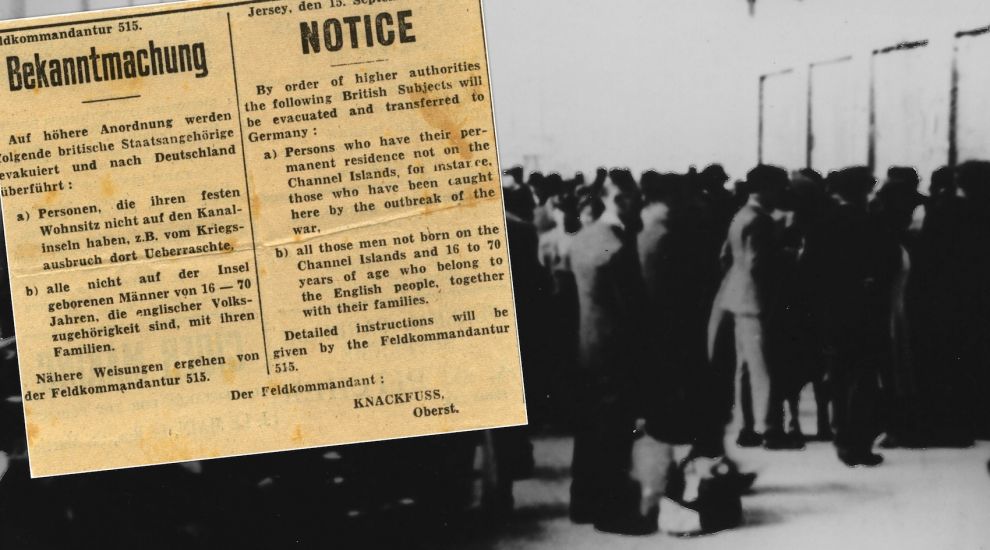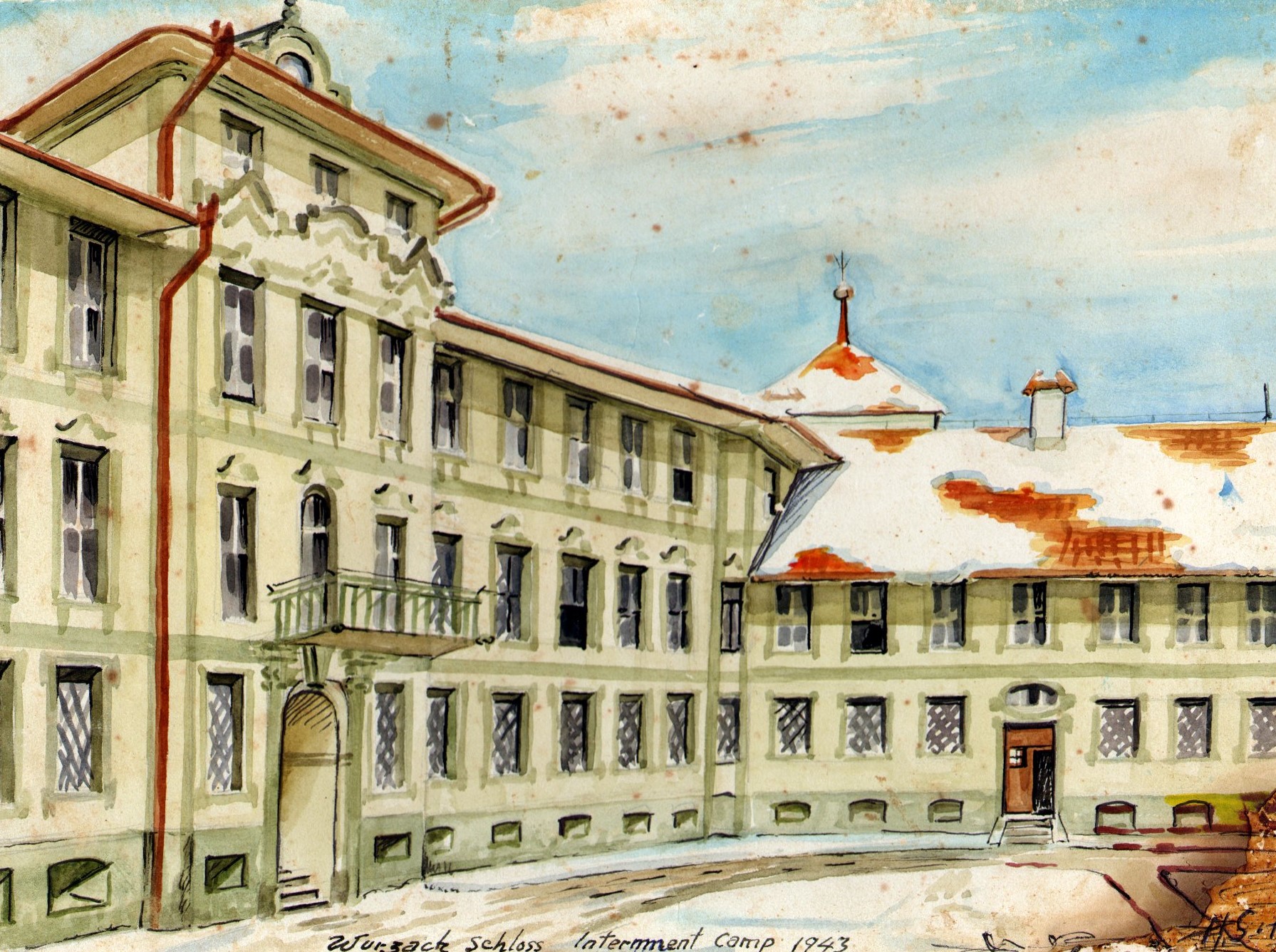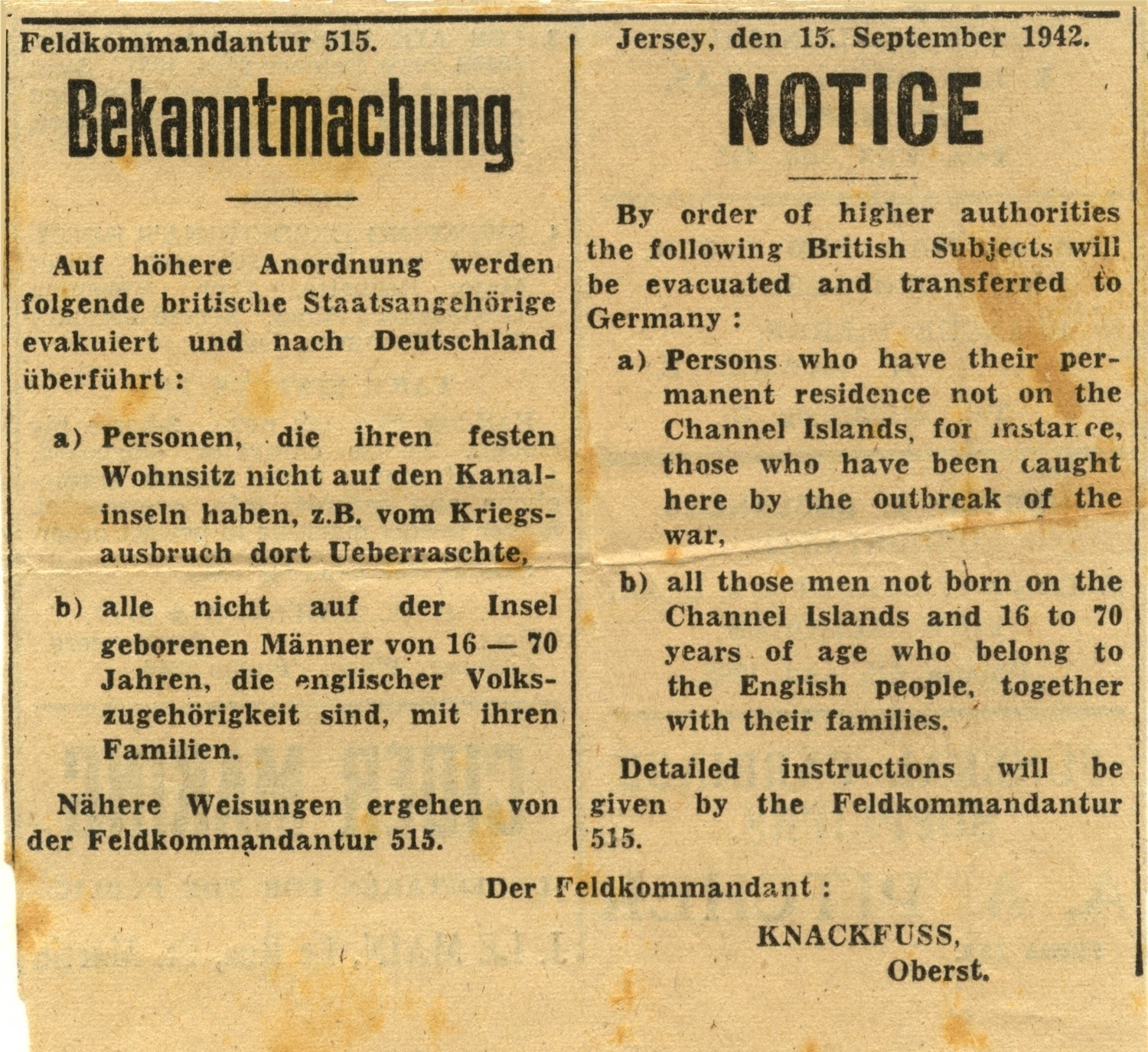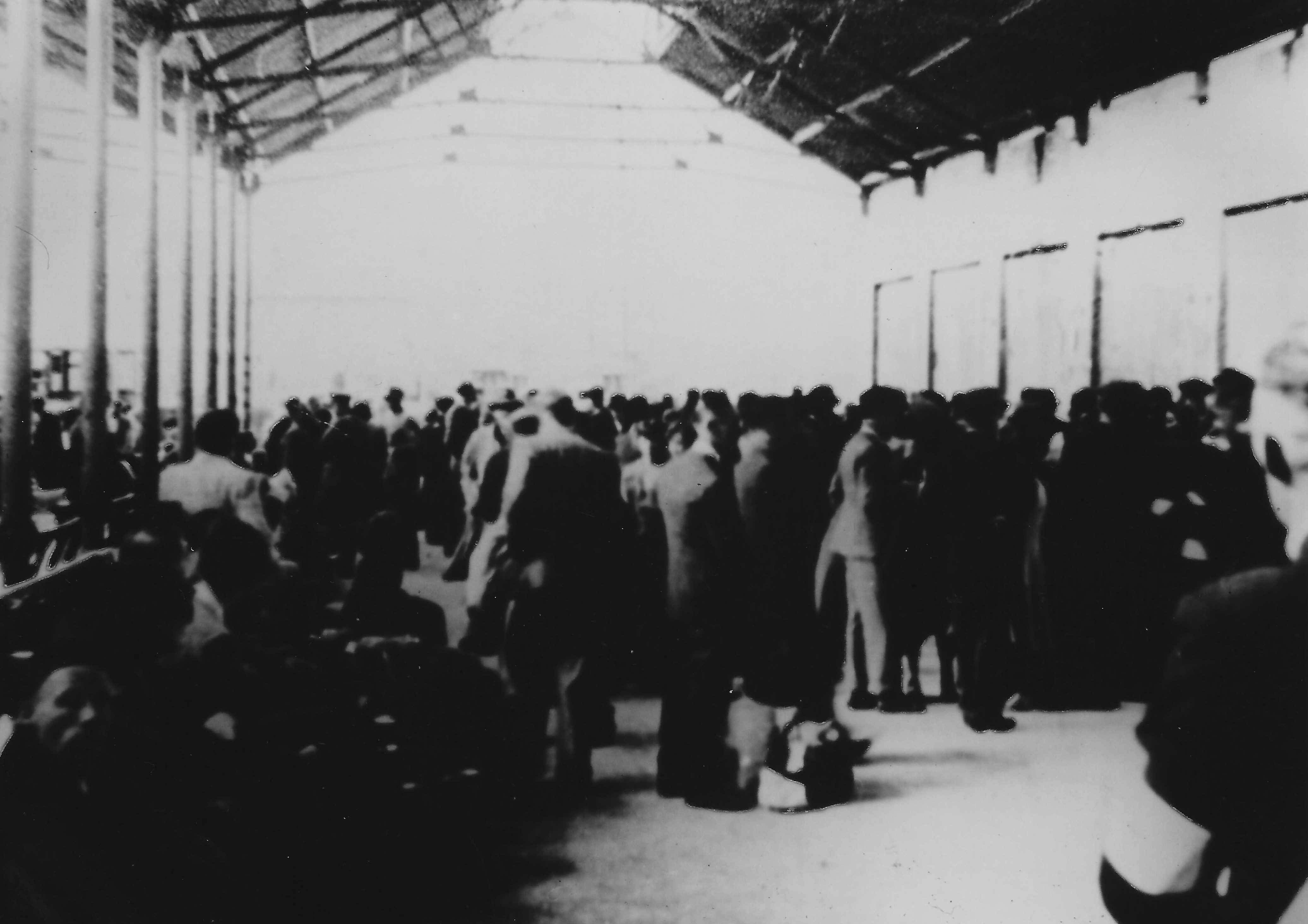


Occupying forces have issued an order that will see more than 2,000 British people forced to leave the Channel Islands... and interned at camps in Germany.
That was the news on this day nearly eight decades ago. Occupation historian Colin Isherwood explores the events that led to their deportation, and the impact the decision had on the island, in his latest column for Express...
78 years ago today, the German Occupying forces issued the following order:
“By order of higher authorities, the following British subjects will be evacuated and transferred to Germany:
(a) Persons who have their permanent residence not on the Channel Islands, for instance, those who have been caught here by the outbreak of the war;
(b) All those men not born on the Channel Islands and 16 - 70 years of age who belong to the English people, together with their families.
Detailed instructions will be given by the Feldkommandantur 515.”
The order was issued by the German Feldkommandant, the German administration for the islands, who were based at College House, now the Jersey College for Girls. The order came as huge shock to the islanders as there had been no pre-warning.

Pictured: A painting of Wurzach, where some islanders were deported to.
The background to this order stemmed back to the autumn of 1941 when Britain had requested that the Iran Government hand over all German citizens working in Iran.
When Hitler heard that Germans were being interned by the British, he was incensed and demanded retaliation. He immediately looked at the Channel Islands as a way of reprisal and wanted to know how many British born citizens were living there.
Hitler initially wanted to intern 10 Britains to every one German interned, which would have meant interning 3,000 islanders. However the German authorities in the islands said that only 1,000 to 2,000 could be interned, as many were not born in Britain and were prominent citizens who were essential to the continued running of the islands. Despite this, Hitler issued the deportation order in late 1941.

Pictured: Adolf Hitler was enraged when he realised his order hadn't been actioned in the previous year, and re-issued it with immediate effect.
The order caused a lot of confusion as it had little detail as to how it was meant to be achieved. Also many of Hitler’s aids were against the idea, so the order was ignored. It may have stayed that way had it not been for a proposal by the Swiss Government for both sides to exchange seriously wounded prisoners of war.
When Hitler heard this he realised the order from the previous year had never be actioned. In a rage, he re-issued the order with immediate effect and on the morning of Tuesday 15th September 1942, the Bailiff of Jersey, Alexander Coutanche, was summoned by the island Commandant to a meeting at College House. The Germans read the order after which the Bailiff expressed his shock and formally protested.
The Kommandant told him the order had been issued by the Furher and he had himself questioned it and had discussed it with one of Hitler’s adjutants, who sympathised but explained there was no way of over-turning the order.
Pictured: A plaque commemorating those deported is still on display.
In way of objection, the Bailiff and many other States members wanted to resign form their posts, but after some debate reconsidered the situation and felt that action would not benefit the local population and so decided to stay in their posts.
During the night of the 15th September 1942, many unfortunate island residents were handed a document which read:
“In Pursuance of a Higher Command, British subjects are to be evacuated and brought to Germany. You have to appear, therefore, on 16th September 1942 not later than 4 o’clock at the Garage, Weighbridge, St. Helier. You have to take with you all papers providing your identity. It is necessary to outfit yourself with warm clothes, strong boots and provisions for two days, meal dishes, drinking bowl, and, if possible, with a blanket. Your luggage must not be heavier than you can carry and must bear a label with your full address. It is further left to you to place ready, for each person, a trunk packed with clothes to be sent afterwards, labelled with full address. It is also left to you to take with you an amount of money not exceeding 10 Reichsmarks for each person. All valuables (jewels) must be deposited as far as possible with the banks. Keys of the houses are to be handed over to the Constables. Should you fail to obey the order, sentence by Court Martial shall be effected."
The feelings of that evening were summed up by Occupation diarist Leslie Sinel:
“The order is both astounding and very upsetting, as the order affects many people who were brought here as babies or young children and have lived here all their lives. Words fail to describe the wretched state of the island at the moment, for those not affected have scores of friends who are; everyone is distressed and there is scarcely a dry eye tonight."

Pictured: The eventual number of people deported by the last wave in February 1943 was 2,300.
The following day large crowds gathered around the Harbour area to say farewell to their friends. Armed German soldiers were on-hand to control the crowds, as tensions were running high. Although armed, many of the soldiers expressed their disapproval by apologising to those departing.
Further deportations took place a few days later, with the last being in February 1943.
In total 2,300 civilians from the Channel Islands were interned at camps at Bad Wurzach, Biberach and Laufen. Despite the boredom and the monotony of life in the camps, many former internees revisited them after the war.
In 2002 as a sign of reconciliation, St. Helier was twinned with the town of Bad Wurzach.
Comments
Comments on this story express the views of the commentator only, not Bailiwick Publishing. We are unable to guarantee the accuracy of any of those comments.